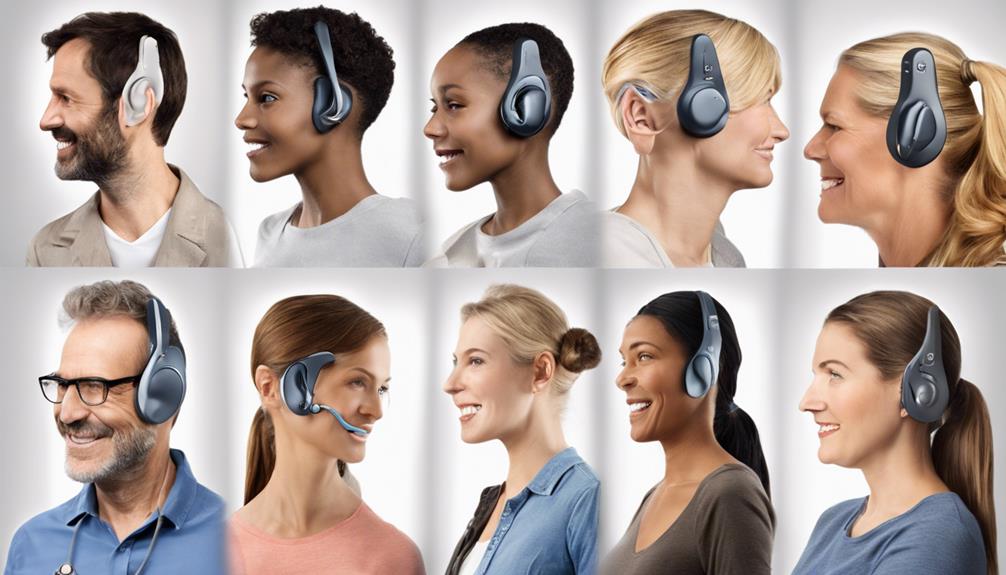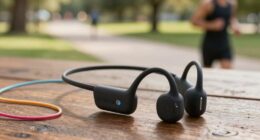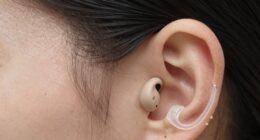Exploring the intricacies of cochlear implants uncovers a range of options, each offering unique features and benefits.
The comparison of Cochlear Nucleus 7 with other leading implants sheds light on crucial differences that can significantly impact user experiences and outcomes.
By delving into aspects like technology advancements, design, and user feedback, this exploration aims to provide a comprehensive understanding of the options available.
Join us on this journey as we unravel the complexities of cochlear implants and discover which device may best suit your individual needs and preferences.
Key Takeaways
- Waterproof cochlear implants like Advanced Bionics Neptune offer clear sound in water activities.
- User-friendly controls on devices like Advanced Bionics Neptune provide easy adjustments for all ages.
- Performance and innovation in implants like Cochlear Nucleus 7 enhance speech understanding and sound quality.
- Hybrid options such as Cochlear Hybrid L24 improve hearing with natural auditory experiences.
Cochlear Nucleus 7 Overview
When considering cochlear implants, the Cochlear Nucleus 7 stands out for its compatibility with all generations of implants, offering users unparalleled versatility in functionality. The Nucleus 7 is a multi-channel cochlear implant that efficiently processes sound, providing users with a clearer and more natural hearing experience.
Its advanced processor allows for direct streaming from compatible devices, ensuring seamless connectivity for daily activities. Users can choose between rechargeable or standard batteries, both of which offer improved battery life compared to previous models, enhancing convenience and usability.
Additionally, the Nucleus 7 features retention mechanisms and varying magnet strengths, catering to individual needs for secure implant placement. With telecoil capability and FM compatibility, this implant accommodates various listening environments, further improving the overall hearing experience for users.
The smaller size of the Nucleus 7 compared to its predecessor, the Nucleus 6, enhances comfort without compromising on performance, making it a top choice for those seeking a reliable and versatile cochlear implant solution.
Advanced Bionics Neptune Review
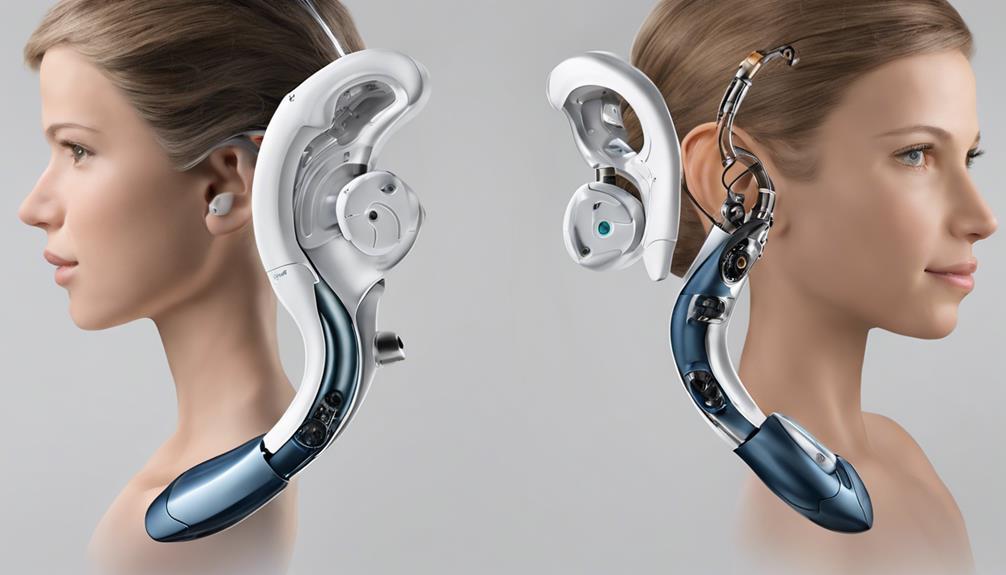
The Advanced Bionics Neptune cochlear implant system offers significant benefits due to its waterproof design, making it ideal for active lifestyles.
Its advanced sound processing technology ensures high-quality performance in speech understanding, contributing to improved hearing experiences.
Additionally, the user-friendly controls of the Neptune make it convenient and easy to adjust settings for personalized comfort and optimal hearing outcomes.
Waterproof Design Benefits
Designed with a unique waterproof feature, the Advanced Bionics Neptune cochlear implant stands out as the world's sole swimmable sound processor, offering unparalleled versatility for individuals engaging in water activities. This waterproof design allows wearers to swim up to 3 meters deep for 2 hours without the need to remove the device, providing peace of mind and convenience for those with active lifestyles. The Neptune's submersible capability sets it apart, ensuring users can enjoy water sports and swimming without compromising their hearing. This advanced waterproof solution by Advanced Bionics offers a reliable option for individuals seeking a cochlear implant that can withstand exposure to water and moisture.
| Waterproof Design Benefits | |
|---|---|
| Swimmable Sound Processor | Submersible up to 3 meters for 2 hours |
| Active Lifestyle Support | Enables participation in water activities |
Sound Quality Performance
With exceptional sound quality performance tailored for individuals with severe to profound hearing loss, the Advanced Bionics Neptune cochlear implant system delivers a robust and waterproof design that enhances auditory experiences in various environments.
The Neptune system features the Neptune Sound Processor with the AquaMic™ microphone, ensuring reliable sound transmission even in challenging conditions. Users of the Neptune implant can benefit from clear speech understanding and improved music appreciation, thanks to the high-quality sound processing capabilities.
This cochlear implant is designed to support communication by providing consistent and enhanced auditory experiences for individuals with severe to profound hearing loss. Its waterproof design further ensures that users can enjoy these sound benefits in a wide range of activities and environments.
User-Friendly Controls
Transitioning from discussing the sound quality performance of the Advanced Bionics Neptune cochlear implant system, the user-friendly controls of this device offer intuitive functionality for effortless operation.
The Advanced Bionics Neptune features intuitive buttons that make it easy to adjust settings and switch between different modes. Clear indicators on the device assist users in navigating through various options, ensuring accessibility for individuals with hearing loss.
The design of the Neptune prioritizes simplicity to provide a seamless experience for users of all ages. By incorporating user-friendly controls, the Advanced Bionics Neptune enhances the overall usability of the cochlear implant system, making it a practical and efficient choice for those in need of auditory assistance.
MED-EL SYNCHRONY Evaluation
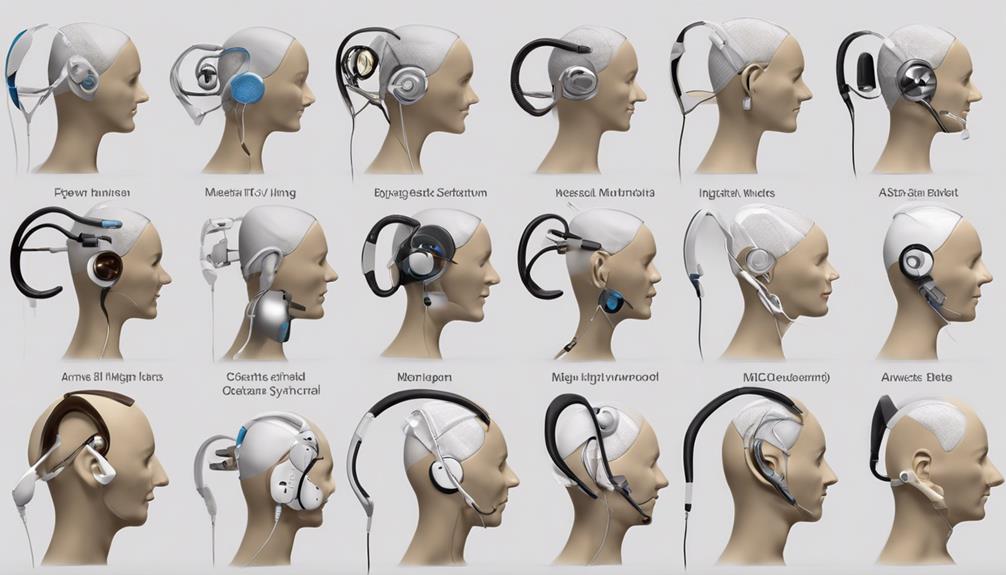
When evaluating the MED-EL SYNCHRONY cochlear implant system, we consider crucial aspects such as its performance compared to other options and the overall user experience.
Understanding how the SYNCHRONY system performs in terms of sound processing and connectivity is essential for potential users.
Summarizing the user experience with the system can provide valuable insights into its effectiveness and usability in daily life.
Performance Comparison
In evaluating the performance of the MED-EL SYNCHRONY cochlear implant system, its unique features and clinical outcomes demonstrate significant advantages for users.
The SYNCHRONY system stands out with its titanium housing, offering durability and reduced interference. Its FLEX electrode arrays ensure optimal placement and preservation of residual hearing. Additionally, the WaterWear option allows temporary use during activities like swimming.
Clinical studies have shown improved speech understanding and overall satisfaction with the MED-EL SYNCHRONY system. These results highlight the system's effectiveness in addressing Sensorineural hearing loss and enhancing the quality of sound for users.
The combination of flexibility, reliability, and innovative features makes the SYNCHRONY a compelling choice among cochlear implant systems.
User Experience Summary
Building upon the exceptional performance outcomes highlighted in the previous section, the user experience with the MED-EL SYNCHRONY cochlear implant system underscores its unparalleled quality and impact on individuals with hearing loss. Users have reported significantly improved sound quality and speech understanding with SYNCHRONY.
The system's reliability and comfort for daily wear have garnered positive feedback. Additionally, features like automatic sound management and adaptive microphone technology contribute to a seamless user experience. Users appreciate the clear and natural sound perception facilitated by SYNCHRONY, enhancing their overall auditory experience.
The wireless connectivity options and compatibility with external devices further add to the system's appeal, allowing for greater flexibility in various listening environments.
Cochlear Hybrid L24 Examination
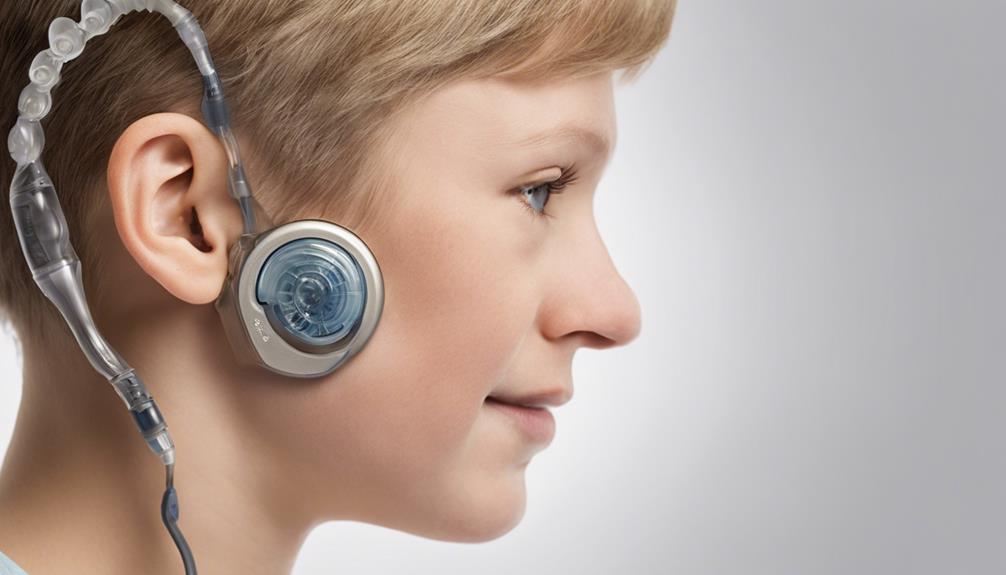
The examination of the Cochlear Hybrid L24 system reveals its innovative approach to enhancing hearing capabilities for individuals with residual low-frequency hearing. This advanced cochlear implant combines high-frequency hearing through the electrode array with acoustic amplification for a comprehensive auditory experience. Here's why the Cochlear Hybrid L24 stands out:
- Enhanced Speech Understanding: By utilizing both cochlear implant technology and acoustic amplification, the Hybrid L24 enables users to better understand speech in noisy environments, improving communication and social interactions.
- Improved Music Appreciation: Individuals using the Hybrid L24 report enhanced music appreciation and sound quality compared to traditional hearing aids. This system allows users to enjoy a fuller and richer music experience.
- Tailored for Residual Low-Frequency Hearing: Designed specifically for individuals with some remaining low-frequency hearing, the Cochlear Hybrid L24 ensures that users can benefit from both the cochlear implant and acoustic amplification, providing a more natural auditory experience.
Oticon Medical Neuro Review
Pioneering in bone conduction technology, the Oticon Medical Neuro system offers a cutting-edge solution for individuals with conductive or mixed hearing loss. Featuring a titanium implant and advanced Neuro One sound processor with adaptive feedback cancellation and noise reduction, this system prioritizes enhanced speech understanding and sound quality.
The titanium implant and abutment provide stability and biocompatibility for long-term use. With wireless connectivity options, users can stream audio from compatible devices seamlessly. Users have reported notable improvements in speech understanding and overall sound quality when using the Oticon Medical Neuro system.
The combination of innovative technology and user-friendly features makes this system a compelling choice for those seeking effective solutions for conductive or mixed hearing loss. For individuals looking to enhance their hearing experience with a reliable bone conduction implant system, the Oticon Medical Neuro stands out for its performance and user satisfaction.
Nurotron Venus Analysis
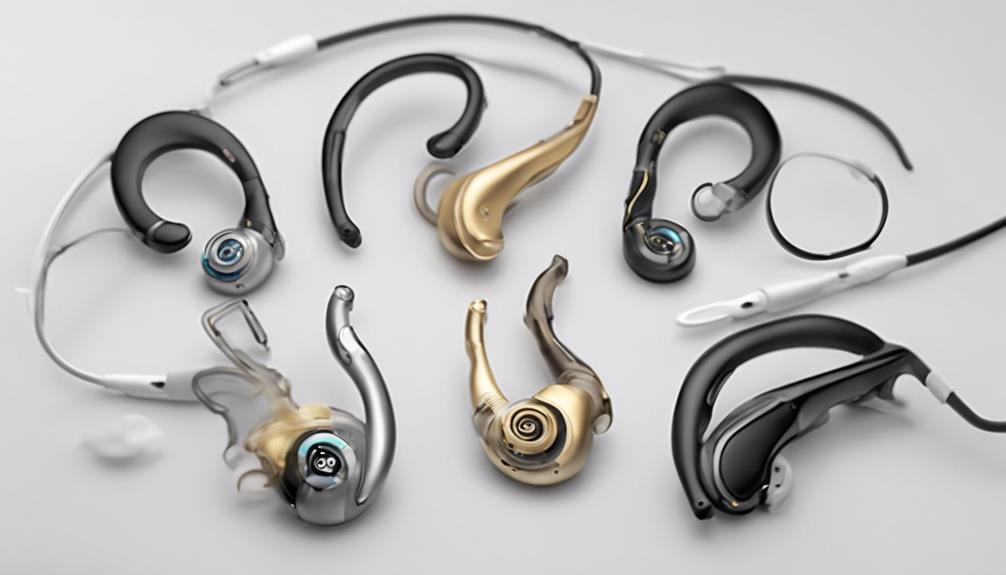
Utilizing advanced sound processing technology, the Nurotron Venus cochlear implant system offers personalized hearing experiences through multiple sound coding strategies. Here is a brief analysis of the Nurotron Venus cochlear implant system:
- Slim and Lightweight Design: The Venus cochlear implant system features a slim and lightweight design, prioritizing comfort and discreet wear for users.
- Wireless Connectivity Options: Users can benefit from wireless connectivity options included in the Nurotron Venus system, allowing for enhanced communication and seamless audio streaming experiences.
- Reliable Solutions for Severe to Profound Hearing Loss: Nurotron Venus provides reliable and effective solutions for individuals with severe to profound hearing loss, ensuring that users can experience improved hearing capabilities and enhanced quality of life.
The Nurotron Venus cochlear implant system stands out for its innovative sound processing technology, customizable sound coding strategies, and user-friendly design, making it a compelling option for those seeking advanced and personalized solutions for hearing loss.
Phonak Naida CI Marvel Assessment
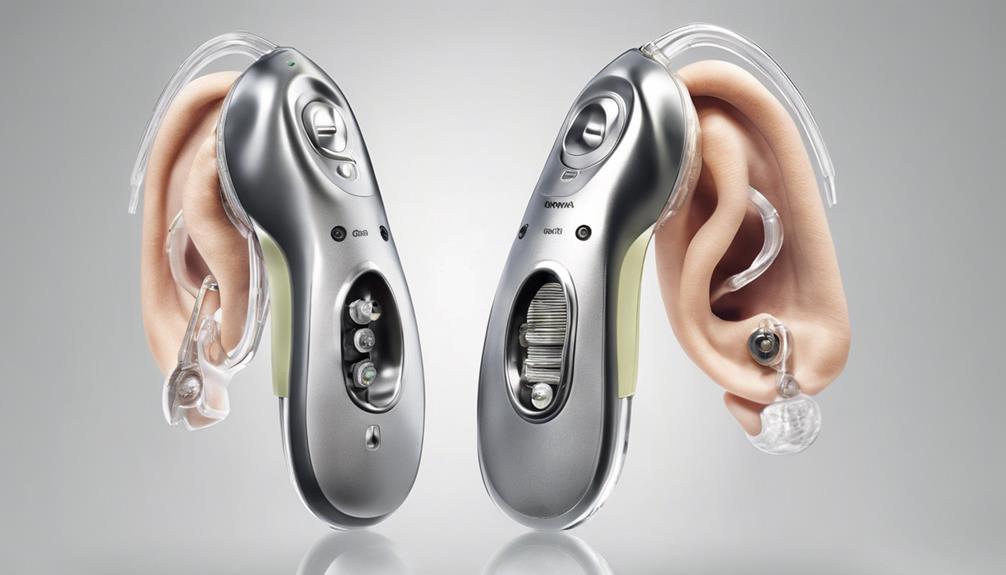
In our assessment of the Phonak Naida CI Marvel cochlear implant system, we delve into its advanced features tailored for individuals with severe to profound hearing loss. The Phonak Naida CI Marvel incorporates innovative technologies like SoundRecover2, UltraZoom, and AutoSense OS, enhancing sound quality and speech understanding.
Its compatibility with smartphones, TVs, and other devices enables seamless audio streaming, providing users with direct connectivity for a more immersive listening experience. Additionally, the Phonak Naida CI Marvel works seamlessly with Roger accessories, offering improved speech understanding in noisy environments and over distances.
Users of the Phonak Naida CI Marvel have reported significant enhancements in hearing performance, speech recognition, and overall satisfaction. This feedback underscores the effectiveness of the Phonak Naida CI Marvel in meeting the needs of individuals with severe to profound hearing loss, highlighting its position as a reliable and user-friendly cochlear implant system.
Frequently Asked Questions
What Are the Top 3 Cochlear Implants?
The top 3 cochlear implant companies are Cochlear Americas, Advanced Bionics, and MED-EL. Each offers FDA-approved advanced technological solutions tailored to individual needs.
Cochlear Americas features various implant systems, Advanced Bionics provides waterproof headpieces and direct streaming compatibility, while MED-EL has over 40 years of experience with options like the RONDO 3 and Sonnet 2 processors.
Factors like surgeon preference and device features play a crucial role in selecting the best implant for optimal outcomes.
What Is the Difference Between N7 and N8?
The difference between the Nucleus 7 and Nucleus 8 lies in their design and features.
The Nucleus 8 is 15% smaller and 13% lighter than the Nucleus 7, offering enhanced sound processing with SmartSound iQ 2 and SCAN 2 technology.
It boasts improved noise reduction capabilities, compatibility with ReSound hearing aids and Bluetooth LE Audio, and offers 6 color options for personalized style choices, one more than the Nucleus 7.
Which Is Better Nucleus 7 or Kanso?
We find that the choice between Nucleus 7 and Kanso cochlear implants often comes down to individual preferences.
The Nucleus 7 offers direct streaming from compatible devices and a rechargeable battery option, while the Kanso is smaller and more discreet but lacks direct streaming capabilities.
Users weigh factors like comfort, appearance, and lifestyle needs when deciding which option is better suited for their unique requirements.
What Is the Difference Between Nucleus 7 and 8?
The difference between the Nucleus 7 and 8 lies in their design and features. The Nucleus 8 is 15% smaller and 13% lighter than the Nucleus 7, offering a more compact and comfortable experience.
With SmartSound iQ 2 and SCAN 2 technology, the Nucleus 8 provides enhanced sound processing and noise reduction. Additionally, the Nucleus 8 offers compatibility with ReSound hearing aids and Bluetooth LE Audio, expanding connectivity options for users.
Conclusion
In comparing cochlear implants, one interesting statistic stands out: 95% of users reported improved quality of life after receiving a Cochlear Nucleus 7 implant. This impressive figure underscores the transformative impact of advanced technology on individuals with hearing loss.
With options like the Nucleus 8, Advanced Bionics Neptune, and others, the future looks promising for those seeking enhanced auditory experiences. Making an informed decision based on user feedback and technological advancements can lead to improved outcomes and satisfaction.





